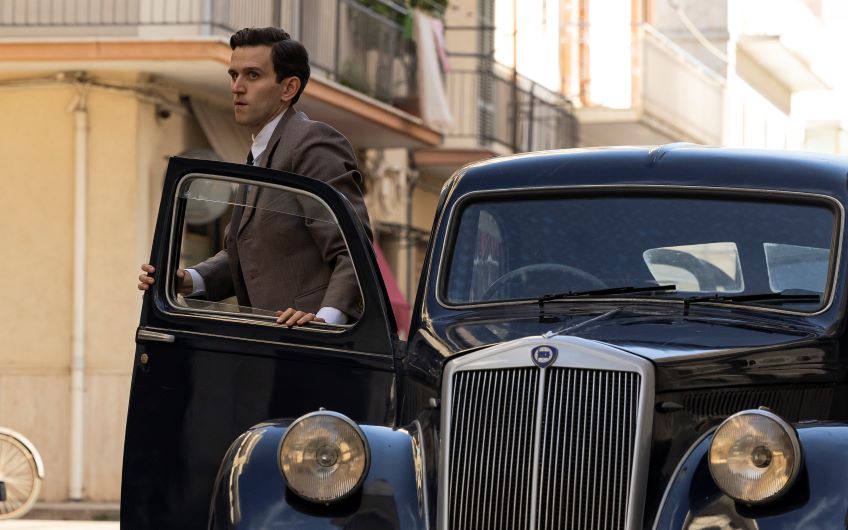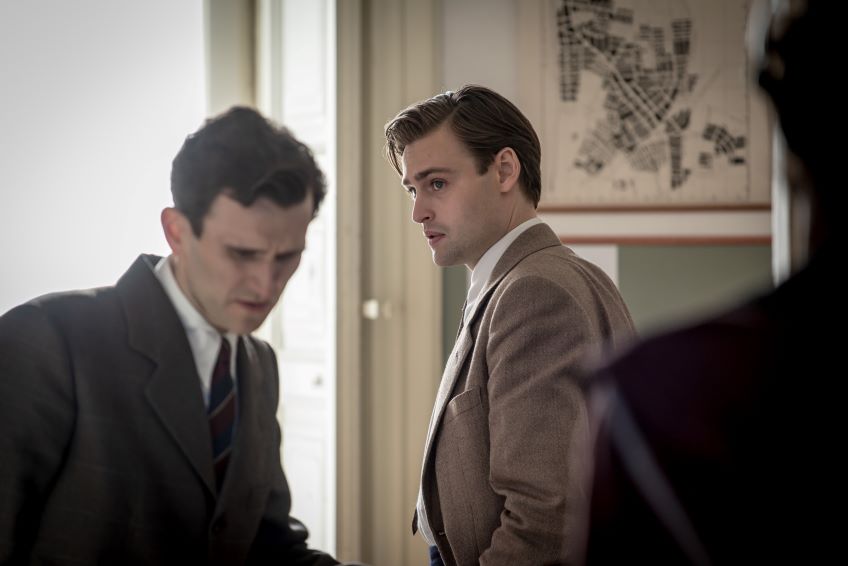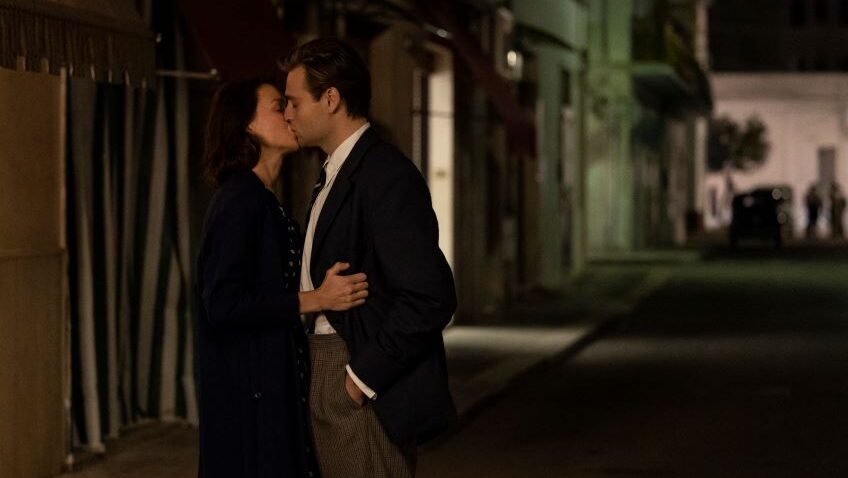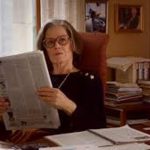Joyce Glasser reviews Shoshana (February 23, 2024) Cert 15, 121 mins. In cinemas
Michael Winterbottom’s previous feature film, co-directed with Mohammed Sawwaf, was the 2022 documentary Eleven Days In May which focused on the deaths of 60 Palestinian children killed during the Israeli bombing of Gaza in 2021. His latest film is not about the deaths of the 13 Israelis killed by Palestinian rockets that sparked that May counter-attack, but it is set in Palestine. Shoshana is a cross-cultural love story based on real people and real events that began nearly a century ago.
For those wondering about the timing, Shoshana has been on Winterbottom’s agenda for over fifteen years. And while you may expect an inflammatory drama pitting Israelis against Palestinians, the director of The Trip, A Mighty Heart, The Road to Guantanamo and Welcome to Sarajevo shines a light on the British government’s bungled strategy in the British Mandatory Palestine.
The film gets off to a worrying start with a relentless, fact-filled narration that makes you feel like a secondary school history student in a doctoral lecture. This problem is partially solved by the convenient creation of a Romeo and Juliet premise, setting the real-life romance between Shoshana Borochov, (the Leto Russian actress Irina Starshenbaum) a strong-minded Jewish, Russian émigré who works for an Israeli newspaper and British-born, Assistant Superintendent of the Palestinian Police Tom Wilkin (Douglas Booth), against the British military’s efforts to manage the Arab-Israeli conflict in the territory. The real Shoshana apparently worked for the Agricultural Workers collective.

Great Britain assumed a disastrous, but in all fairness, challenging, role in the administration of Palestine between 1920 and 1948. The story focuses on the period between 1931 and 1944 – corresponding to Shoshana’s relationship with Tom. They make a striking pair. Both are tall, good-looking, sociable intelligent, hard-working and committed to building a life in Tel-Aviv, which they love. She speaks English and he is learning Hebrew – and both know how to shoot a gun.
Shoshana is a sexually liberated young woman and demonstrative in her affection for Tom. Not everyone approves of this relationship, and forces around them succeed in creating a temporary rift between them. Many think counter-terrorist officer Tom is using Shoshana for espionage work, while she is a member of the underground territorial defence force Haganah that advocates the creation of an independent Jewish state by peaceful means.
Enter Geoffrey Morton (Harry Melling) who won the British Empire Medal at age 29 for being cool under fire in putting down Arab revolts around Jenin. Morton is introduced to us in a harrowing scene in which his devious talents for uncovering arms caches and identifying Arab culprits with brutal, unflinching detachment are clearly displayed.
The tension rises when Morton is appointed head of the CID (criminal investigation division) over Tom, who knows the people of Tel-Aviv better and feels more qualified. The two clash, as Tom is not racist and has a longer-term, broader vision than Morton. Morton, who learned Arabic for the posting, prefers shooting members of Israeli and Arab factions to understanding them or giving them a fair trial. Morton disapproves of Tom’s relationship with Shoshana, although the British tolerated the non-militant Haganah which fought with them in WWII against the Axis. Shoshana’s British-hating brother, however, is a member of Irgun who disapproves of Tom.

Morton declares war on Irgun, the paramilitary off-shoot of Haganah. Irgun’s policy is based on Ze’ev Jabotinsky’s Revisionist Zionism movement, and, in the film, the co-conspirators refer to Jabotinsky, who was to die in 1940 in New York, as their leader. Action is needed as the British High Commissioner is limiting Jewish immigration from Nazi-occupied Europe into Palestine. Polish born poet Avraham Stern (Aury Alby) steps into the infighting and heads the break-off Lehi faction.
When Stern orders attacks on the CID officers who are arresting the Lehi and three officers are killed in attacks also intended for Morton and Tom, he has no choice but to follow Morton’s orders. Their focus is on finding Stern, who by now is hot-bedding around Tel-Aviv. Lehi’s focus is on taking out Tom Wilkin and Morton.
The search for Stern, culminating in Morton’s infamous actions, which remain unresolved to this day, is certainly the highlight of the film. These scenes are pure drama with suspenseful action that the audience can follow, which is something missing from other sections of the film.
With the complexity of the political background, lead writer Laurence Coriat (who wrote Winterbottom’s Wonderland, Geona and Everyday), writing with Paul Viragh and Winterbottom, do a commendable job boiling it down and integrating it into the drama. Yet in the process, the central love story gives way to the political strand, and by the end, the love story remains emblematic rather than genuine, with Shoshana’s character in particular feeling unwritten.
Melling has come a long way from playing Harry Potter’s Muggle cousin Dudley Dursley, but his character is almost a caricature rather than a three-dimensional person. Morton, who lived a long and decorated life after Palestine, is portrayed as the film’s villain, while Stern, a poet and teacher turned “freedom fighter” is so underwritten that we can only see him as the foil for Morton.




